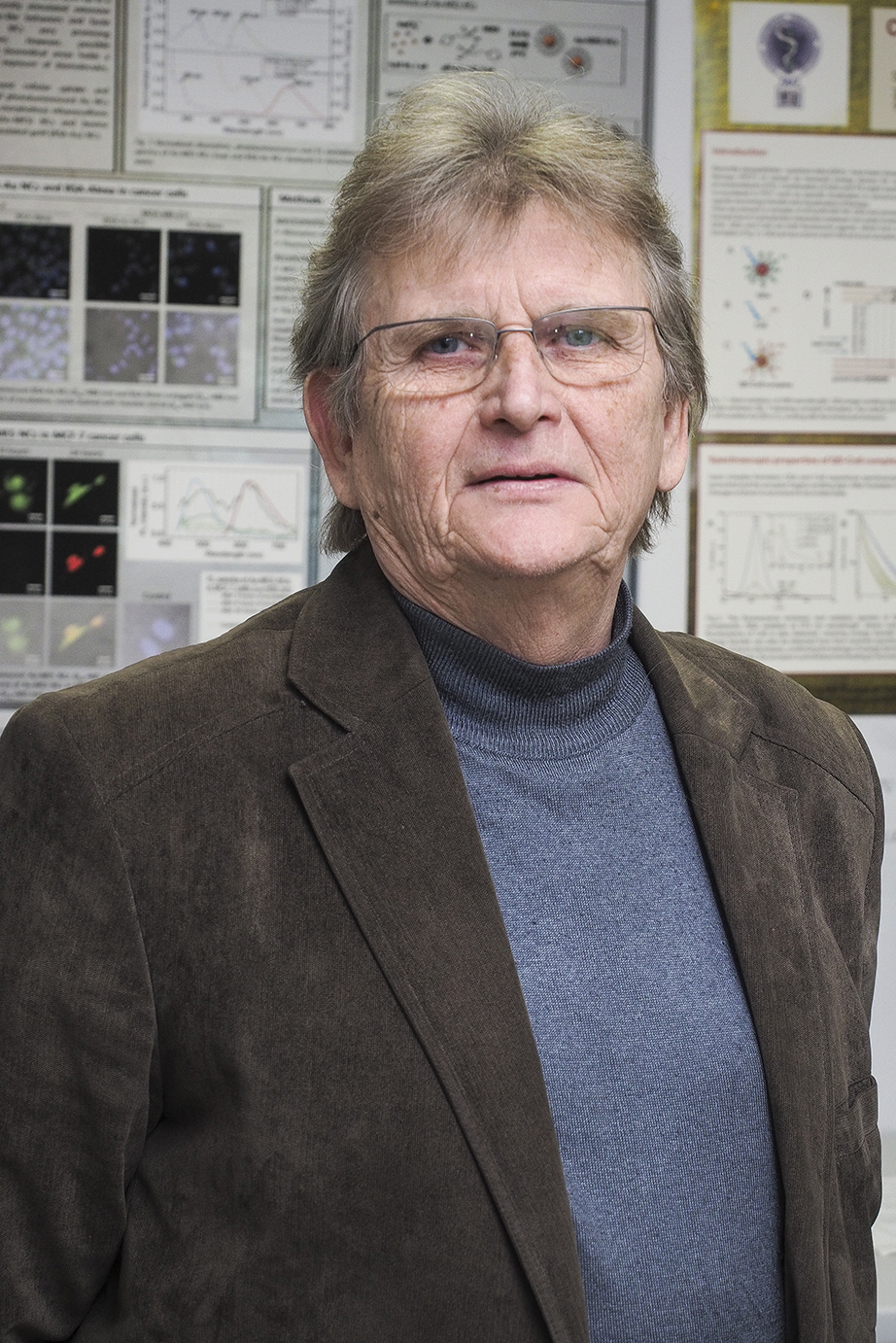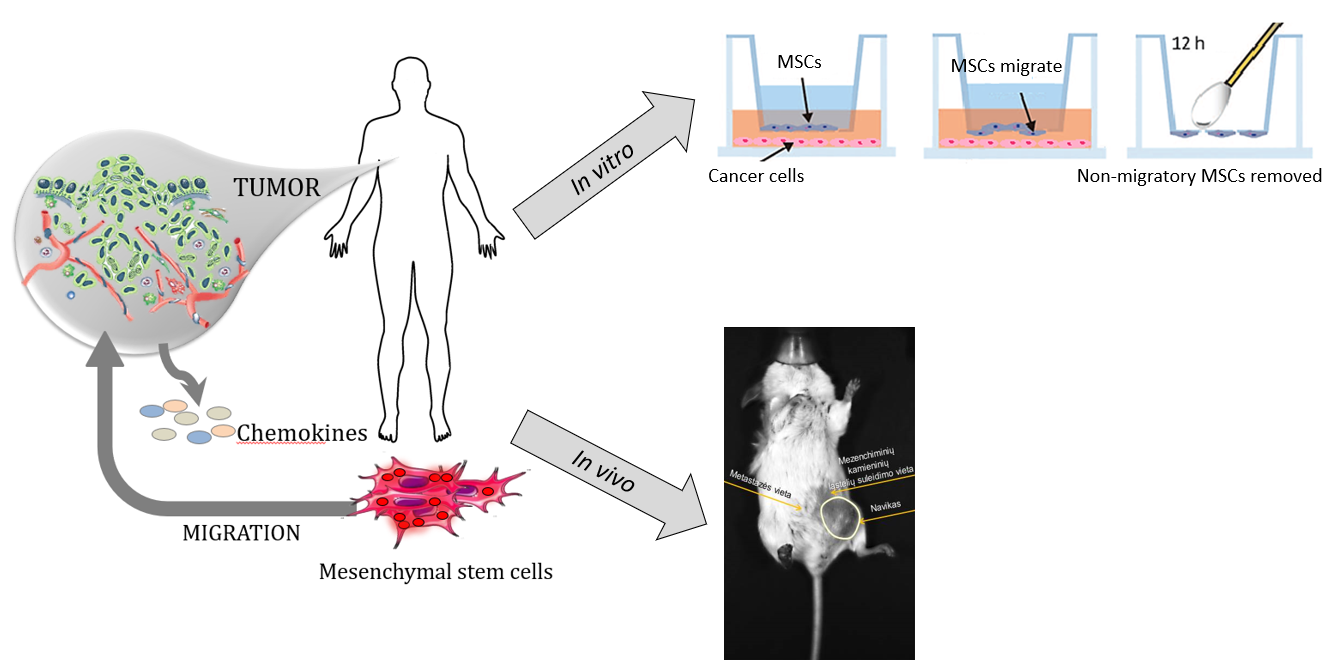-
 Clinical Departments
Clinical Departments
- Emergency Department
- Outpatient Department
- Diagnostic Departments
-
Surgical Departments
- Anesthesiology, Intensive Care and Operating-room Department
- Thoracic Surgery and Oncology Department
- Head and Neck and Skin Cancer Surgery and Oncology Department
- Oncourology Department
- Oncogynecology Department
- Breast Surgery and Oncology Department
- General and Abdominal Surgery and Oncology Department
- Therapeutic Departments
- Nursing Department
- Physical Medicine and Rehabilitation Department
-
 Research Departments
Research Departments
-
 Cancer Registry
Cancer Registry
-
 International cooperation
International cooperation
-
.png) Competence Center
Competence Center
- Home
- Research Departments
- Scientific departments
- Biomedical Physics Laboratory
- Response of mesenchymal stem cells

Head Prof. Ričardas Rotomskis, Ph.D.
Tel.: +370 5 219 0908;
Fax: +370 5 272 0164;
Email. ricardas.rotomskis![]() nvi.lt
nvi.lt
Response of mesenchymal stem cells
Human mesenchymal stem cells (MSCs) are non-hematopoietic spindle-shaped fibroblast-like cells derived from the mesoderm. They possess self-renewal and immunomodulatory properties and have a tendency to migrate toward the tumor. Owing to these tumor-tropic properties, MSCs could be used to transport theranostic nanoparticles directly to cancerous tissues.

During the project years (2014-2016), scientists from Biomedical Physics Laboratory performed research on this topic together with partners from University of Latvia, Faculty of Medicine:
- Biocompatibility of QDs in human dermal MSCs – nanoparticles did not affect viability, proliferation, differentiation potential, and immunophenotype of MSCs.
- Uptake mechanism of QDs by MSCs – in serum supplemented medium QDs were internalized through clathrin-mediated endocytosis, whereas in serum-free medium QD uptake occurred through the clathrin and caveolin/lipid raft-mediated endocytosis pathways.
- Subcellular localization – QDs are localized inside endocytic vesicles; during the first 6 hours – in early endosomes in both the cell periphery and perinuclear area, after 24 hours – late endosomes and lysosomes (Saulite et al., 2017).

MSCs ability to migrate towards cancer cells and deliver nanoparticles was proven with both in vitro and in vivo studies.
- In vitro migration – Transwell® insert plates. MSCs migrated towards cancer cells and cancer cell-conditioned medium but did not migrate toward healthy cells. QDs did not reduce the migration of MSCs.
- In vivo migration – human tumor-bearing SCID CB17 mice. MSCs were able to migrate toward tumor and distant metastases. Some MSCs were only found in spleen, kidneys and liver (Dapkute et al., 2017).

Although the project finished in 2016, the research is still ongoing. Biomedical Physics Laboratory has isolated and expanded skin MSCs from redundant eyelid skin left during blepharoplasty (the study is approved by Vilnius Regional Biomedical Research Ethics Committee) and continues the research on theranostic nanoparticle delivery to tumors using MSCs.
Updated 2023-02-07 15:08
